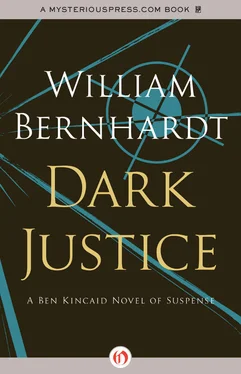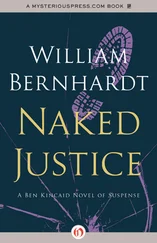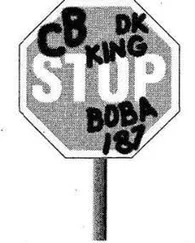William Bernhardt - Dark Justice
Здесь есть возможность читать онлайн «William Bernhardt - Dark Justice» весь текст электронной книги совершенно бесплатно (целиком полную версию без сокращений). В некоторых случаях можно слушать аудио, скачать через торрент в формате fb2 и присутствует краткое содержание. Жанр: Триллер, на английском языке. Описание произведения, (предисловие) а так же отзывы посетителей доступны на портале библиотеки ЛибКат.
- Название:Dark Justice
- Автор:
- Жанр:
- Год:неизвестен
- ISBN:нет данных
- Рейтинг книги:5 / 5. Голосов: 1
-
Избранное:Добавить в избранное
- Отзывы:
-
Ваша оценка:
- 100
- 1
- 2
- 3
- 4
- 5
Dark Justice: краткое содержание, описание и аннотация
Предлагаем к чтению аннотацию, описание, краткое содержание или предисловие (зависит от того, что написал сам автор книги «Dark Justice»). Если вы не нашли необходимую информацию о книге — напишите в комментариях, мы постараемся отыскать её.
Dark Justice — читать онлайн бесплатно полную книгу (весь текст) целиком
Ниже представлен текст книги, разбитый по страницам. Система сохранения места последней прочитанной страницы, позволяет с удобством читать онлайн бесплатно книгу «Dark Justice», без необходимости каждый раз заново искать на чём Вы остановились. Поставьте закладку, и сможете в любой момент перейти на страницу, на которой закончили чтение.
Интервал:
Закладка:
“I’m afraid I don’t get it.”
“Let’s take tree spiking, for example. Tree spiking is not about trying to hurt loggers. Tree spiking is something we do when we hear that another expanse of old-growth forest is about to be sold for logging. Basically, we hammer a nail or some other large piece of metal into a tree. We then warn the Forest Service or the timber company bidding on the sale or both. At that point, if the Forest Service still wants to sell the forest, they have to send a crew out with metal detectors and crowbars to remove the spikes. It’s a lot of trouble and expensive. In many cases, the Forest Service simply cancels the sale. If they do proceed, many logging companies will not bid, because they know that if a spike runs through their lumbermill, it could damage the blade of the saw and cost them thousands of dollars. Toss in some sabotaged tree cutters or haul trucks, and before long the profit margins start shrinking. And since profits are the raison d’etre of big corporations, the trees don’t get cut. Not because the loggers have decided to perform a service for humanity, but because our efforts have simply made it too expensive.”
“But tree spiking still creates a danger that someone will be hurt.”
“We always discourage spiking trees at low levels, where it could strike a chain saw and hurt a logger. We spike up higher than they can reach.”
“Wait a minute,” Christina said. “I remember hearing about some logger who got hurt by a spiked tree.”
“But do you know what actually happened?”
“Well …”
“Here’s the facts. In 1987, a band saw in a Cloverdale, California, mill struck an eleven-inch spike and shattered, sending pieces of blade flying across the room. One section hit a logger named George Alexander and broke his jaw. Instantly, the media jumped on the bandwagon denouncing eco-terrorists without doing the least investigation of the bill of goods they were being sold by the logging corporation. The truth is, that band saw shouldn’t have shattered like that just because it hit a spike. It was cracked, wobbly, and due for replacement, but it hadn’t been replaced because the company didn’t want to spend the money. Alexander himself said he almost didn’t go to work that day-because he was concerned about the dangerous condition of the band saw, which he had been complaining about for weeks.”
“Still, if the environmentalists hadn’t spiked the tree-”
“But did they? The spike was not in an old-growth tree. It came from a nonwilderness tract. There were no environmental groups protesting the harvesting of those trees. The protest came from local area residents, who were concerned about the noise, truck traffic, and erosion damage the logging was causing. Weeks after the incident, the police admitted their chief suspect was a local conservative Republican in his mid-fifties who owned property near the logging site. And the logging company later admitted they had received warnings and threats-from local residents. Of course, none of that was reported in the press.”
“It’s hard to imagine someone other than an eco-group spiking trees,” Christina said.
“Excuse me,” Rick said, jumping in, “but who do you think invented tree spiking? Loggers, that’s who. Loggers invented it around the turn of the century during the labor wars with the big logging companies here in the Pacific Northwest. We just borrowed a trick from their toolbox.” He paused. “Look, I wish we could get our work done with hugs and kisses, too, but at some point you’ve gotta face facts. It’s like B. Traven said: ‘This is the real world, muchachos, and you are in it.’ ”
“We’re getting off the subject again,” Ben said. “If anyone knows of anything that might help Zak or might possibly be relevant to the trial, please come tell me.”
“We will,” Maureen said, speaking for all of them. “Anything else we can do for you?”
“Yes. Stay out of trouble.”
“What’s that supposed to mean?”
“I think you know. No spiking, exploding, or any other illegal activities until this trial is over.”
“Are you saying we should turn the forest over to the loggers? Maybe just roll out a red carpet?”
“I’m saying that jurors are influenced by pretrial publicity, okay? Even the most fair-minded soul can’t help knowing what he knows. If there’s a lot of bad press about Green Rage, it won’t help Zak at trial.”
Rick looked aggravated. “We can’t just sit on our hands!”
“I didn’t ask you to give up. I asked you not to do anything illegal. Magic Valley is already in turmoil. It’s the worst possible setting for the trial of an environmental activist accused of murdering a logger, and my chances of getting a change of venue are slim. Any aggressive activity by Green Rage will only make the situation worse.”
“Sorry,” Rick said. “We can’t afford to lay low. They could level this whole forest before the case goes to trial.”
Doc nodded. “I agree.”
“People, be reasonable!” Christina pleaded. “Do you want to see Zak convicted?” She appealed to Deirdre. “Deirdre, you’re a scientist. You’re used to thinking logically. Talk to them.”
She shook her head slowly. “I’m sorry. I agree with them. If we lay low, this forest will disappear.”
“Then you’ll plant new trees.”
“You can plant new trees,” Deirdre said, “but you can’t plant a forest.”
“I don’t know what you mean.”
“It’s been proven scientifically a dozen times over. Once a forest is gone, it’s gone. Trees may be a renewable resource, but forests are not. Replacement trees, set out in rows, all the same size and species, are less able to resist the drought and cold, insects and diseases, because they grow in simplified strands, not in the vigorous, complex ecosystems that evolved naturally over eons.”
“Trees are trees-”
“Scientists have performed several studies in the aftermath of clear-cutting, focusing on the herbaceous layer-the shrubs and plants that are sheltered by forest trees-the forest life forms most sensitive to disturbances. Their conclusions are uniform. The forest doesn’t-won’t-grow back. You see, the loggers engage in monoculture; they see the forest as nothing but trees to be harvested. In truth, the forest is a complex organism filled with varied but interdependent life. Once that organism is disturbed, it becomes vulnerable to disease and extinction. In areas where clear-cutting occurred decades ago, species and foliage have drastically declined. On average, less than half of the species returned, and only a third of the plant life. The conclusion is inescapable-forests don’t grow back.”
“It’s true,” Rick said. “I grew up in Vermont. It used to be almost entirely covered with trees-till the forests were clear-cut almost a century ago. We used to have white pines reaching two hundred feet in height. Black walnut trunks five and six feet through the middle. Chestnuts spread two hundred feet from one branch tip to the next. And what do we have now? A forest of sticks.”
“I grew up in Michigan,” Doc said. “The great pines that used to grow there disappeared after they were clear-cut. They were replaced- when they were replaced-by oaks and aspens, which are being devoured by the gypsy moths so prevalent now that it’s dangerous to drive during the caterpillar season-the roads are slick with mashed corpses of the larvae. Changing the forest composition totally ruined the ecosystem.”
“And,” Deirdre said, “we haven’t even factored in other human activities that are killing trees and making regrowth difficult. Air pollution. Acid rain. Ozone depletion. The bottom line is that when the evolved, biologically rich ecosystem that created the original forest is destroyed, it’s destroyed forever.”
Читать дальшеИнтервал:
Закладка:
Похожие книги на «Dark Justice»
Представляем Вашему вниманию похожие книги на «Dark Justice» списком для выбора. Мы отобрали схожую по названию и смыслу литературу в надежде предоставить читателям больше вариантов отыскать новые, интересные, ещё непрочитанные произведения.
Обсуждение, отзывы о книге «Dark Justice» и просто собственные мнения читателей. Оставьте ваши комментарии, напишите, что Вы думаете о произведении, его смысле или главных героях. Укажите что конкретно понравилось, а что нет, и почему Вы так считаете.







